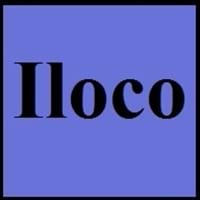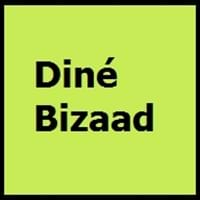Ilocano and Navajo
Countries
Philippines
United States of America
National Language
Philippines
United States of America
Second Language
Not spoken in any of the countries
Not spoken in any of the countries
Speaking Continents
Asia
North America
Minority Language
Not spoken in any of the countries
Not spoken in any of the countries
Regulated By
Commission on the Filipino Language
Not Available
Interesting Facts
- Ilocano was originally written with Baybayin syllabary, then gradually it was replaced by Latin alphabet.
- Northwest Luzon is the original Ilocano homeland.
- Navajo language is tonal language, as it heavily relies on pitch to distinguish between similar words.
- Navajo ethinc group is 2nd largest Native American group.
Similar To
Tagalog, Indonesian and Malaysian Languages
Apache Language
Derived From
Not Available
Not Available
Alphabets in
Ilocano-Alphabets.jpg#200
Navajo-Alphabets.jpg#200
Scripts
Ilokano Braille, Latin
Latin
Writing Direction
Not Available
Not Available
Time Taken to Learn
Not Available
Thank You
Agyamanak
Ahéhee'
How Are You?
Kumusta?
Ąąʼ haʼíí baa naniná?
Good Night
Naimbag a rabii
Yá'át'ééh hiiłchi'į'
Good Evening
Naimbag a sardam
Yá'át'ééh ałní'íní
Good Afternoon
Naimbag a malem
Yá'át'ééh
Good Morning
Naimbag a bigat
Yá'át'ééh abíní
Please
Not available
T'aa shoodi
Sorry
Agpakawanak
Not available
I Love You
Ayayatenka
Ayóó ánííníshí
Excuse Me
Maawan-dayawen
Shoohá
Dialect 1
Balangao
Navajo1
Where They Speak
Philippines
Arizona
How Many People Speak
Not Available
Where They Speak
Philippines
New Mexico
How Many People Speak
Not Available
Dialect 3
Not present
Navajo3
Where They Speak
Not present
Utah
Speaking Population
Not Available
Native Name
ilokano
Diné Bizaad / Dinék'ehjí
Alternative Names
Ilokano, Iloko
Navaho
French Name
ilocano
navaho
German Name
Ilokano-Sprache
Navajo-Sprache
Pronunciation
Not Available
Not Available
Ethnicity
Ilocano people
Navajo people
Origin
18th Century
1500 CE
Language Family
Austronesian Family
Dené–Yeniseian Family
Subgroup
Not Available
Athapascan
Branch
Not Available
Not Available
Early Forms
No early forms
No early forms
Standard Forms
Modern Ilocano
Navajo
Language Position
Not Available
Signed Forms
Not Available
Navajo Sign Language
Scope
Individual
Individual
ISO 639 1
No data available
nv
ISO 639 6
Not Available
Not Available
Glottocode
ilok1237
nava1243
Linguasphere
31-CBA-a
No data available
Language Type
Living
Living
Language Linguistic Typology
Not Available
Subject-Object-Verb
Language Morphological Typology
Not Available
Fusional, Polysynthetic, Synthetic
All Ilocano and Navajo Dialects
Most languages have dialects where each dialect differ from other dialect with respect to grammar and vocabulary. Here you will get to know all Ilocano and Navajo dialects. Various dialects of Ilocano and Navajo language differ in their pronunciations and words. Dialects of Ilocano are spoken in different Ilocano Speaking Countries whereas Navajo Dialects are spoken in different Navajo speaking countries. Also the number of people speaking Ilocano vs Navajo Dialects varies from few thousands to many millions. Some of the Ilocano dialects include: Balangao, Bontoc. Navajo dialects include: Navajo1 , Navajo2. Also learn about dialects in South American Languages and North American Languages.
Ilocano and Navajo Speaking population
Ilocano and Navajo speaking population is one of the factors based on which Ilocano and Navajo languages can be compared. The total count of Ilocano and Navajo Speaking population in percentage is also given. The percentage of people speaking Ilocano language is 0.14 % whereas the percentage of people speaking Navajo language is Not Available. When we compare the speaking population of any two languages we get to know which of two languages is more popular. Find more details about how many people speak Ilocano and Navajo on Ilocano vs Navajo where you will get native speakers, speaking population in percentage and native names.
Ilocano and Navajo Language Codes
Ilocano and Navajo language codes are used in those applications where using language names are tedious. Ilocano and Navajo Language Codes include all the international language codes, glottocodes and linguasphere.





